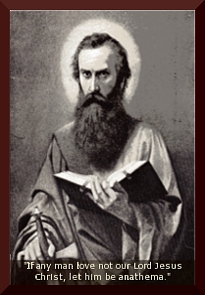The following is my translation of an article posted on the Spanish blog,
Pro Misa Tradicional en Ciudad Real:
The daily newspaper La Republica recently published an interesting piece dedicated to “the music of God”. In that context it presents an interview with Spanish Msgr. Pablo Colino, director of the choir of the Philharmonic Orchestra of Rome, former Master of the Julia Chapel, and Canon of the Basilica of St. Peter, which we translate as follows:
Maestro Colino, why are sacred music and the liturgy in crisis?
Everything was rushed after the Vatican II Council, with that big, superficial wave of pseudo-renewal that has caused so much damage in almost all of our churches. It is enough to attend any liturgical celebration, to experience horrible guitars, deafening electronic keyboards, and perfunctory choirs. All led by poorly instructed directors. Although there are encouraging exceptions, that we believe, could be well expected in the future.
Could you give an example?
Recently, in Terni, an interesting congress on sacred music took place, and for that occasion, many youthful choirs and many groups of artists specializing in liturgical music were present. It has been beautiful and interesting to listen to them. And also encouraging.
But is there a “prescription” for reviving sacred music?
We must return to a serious, rigorous and zealous study in the scholae cantorum, in the conservatories and, perhaps, the schools. Sacred music is a universal patrimony, among the highest and perennial forms of art. And Italy is full of them, having given birth to the greatest composers of liturgical music.
And what should be the programs in these schools?
It is of fundamental importance to once more transmit the direct knowledge of Gregorian chant and, at the same time, to improve the training of the musicians, directors and choirs. There will be no headway without pedagogical rigor and the knowledge of Gregorian [chant], the mother of sacred music; but I dare to say that of all the music, including contemporary.



